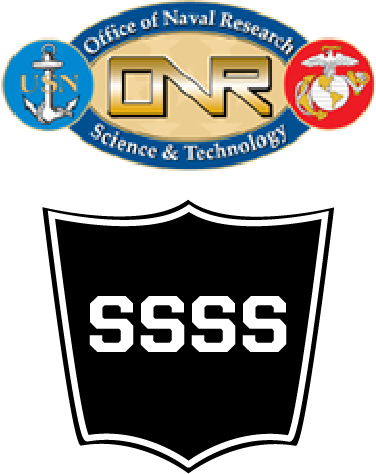2020 ONR Software Security Summer School (SSSS20), Online, August 3-7, 2020
Questions? Please email: ssss20@cerias.purdue.edu
Agenda
Monday, August 3rd, 2020
Pre-Tutorial Demo-only Day
10:00AM - 10:55AM (ET)
Help Session: Using WebEx and Connecting to Tutorial Instances
11:00AM - 12:00PM (ET)
SkyWalker: Toward Automated Synthesis of Offensive Agents to Counter C&C-Driven Mobile Cyber Attacks
RVFuzzer: Finding Input Validation Bugs in Robotic Vehicles through Control-Guided Testing
Flexible Process Monitoring with the Process Firewall
4:00PM - 5:00PM (ET)
Help Session: Using WebEx and Connecting to Tutorial Instances
Tuesday, August 4th, 2020
Hands-on Tutorial Day 1
9:50am - 10:00am (ET)
10:00AM - 1:00PM (ET)
RetroWrite: Efficient Static Binary Rewriting for Security Testing
Adopting RAZOR for Post-deployment Software Debloating
Wednesday, August 5th, 2020
Hands-on Tutorial Day 2
9:50AM - 10:00AM (ET)
Matt Mickelson, SSSS’20 Wednesday Kick-off
10:00AM - 1:00PM (ET)
Less is More: Introducing an Automated Debloating Pipeline based on Dynamic Web Application Usage
 SSSS’20 Less is more playground (Full version)
SSSS’20 Less is more playground (Full version)
 SSSS’20 Less is more playground (Short Version version)
SSSS’20 Less is more playground (Short Version version)
- Video
- Download VM
2:30PM - 5:30PM (ET)
JDebloat—Synergistic Java Bytecode Customization through Static Debloating and Delayering
Thursday, August 6th, 2020
Hands-on Tutorial Day 3
9:55AM-10:00AM (ET)
Dan Koller, SSSS’20 Thursday Kick-off
10:00AM - 1:00PM (ET)
Software Fault Encouragement
2:30PM - 5:30PM (ET)
Applying CBAT for Binary Patch Verification
Friday, August 7th, 2020
Hands-on Tutorial Day 4
9:55AM - 10:00AM (ET)
Sam Weber, SSSS’20 Friday Kick-off
10:00AM - 1:00PM (ET)
Automated System Call Policy Generation for Container Attack Surface Reduction
2:30PM - 5:30PM (ET)
Communication Protocol Customization and Fuzzing
Technical Requirements for Attendees Computers
- A reasonably fast internet connection that can support two-way video conferencing and interactive use of a remote computer system simultaneously.
- Webex Training is best supported on Windows and macOS. Other operating systems (e.g. Linux, Android, iOS) are not supported and may not allow you to share your screen if you need assistance with the tutorials.
- An RDP client (Microsoft RDP Client Mac/Windows 10) will be needed for accessing AWS instances used for lab exercises.
- Slack (optional)
Instructions for Windows and Mac Users
Tutorial Abstracts
RetroWrite: Efficient Static Binary Rewriting for Security Testing
EPFL and Purdue University
Tues. Aug. 4th, 2020 10:00AM - 1:00PM
Adopting RAZOR for Post-deployment Software Debloating
Georgia Tech
Tue. Aug. 4th, 2020 2:30PM – 5:30PM
In this tutorial, attendees will have the opportunity to use Razor to debloat post-deployment software. We will explore dynamic tracing techniques to trace software’s execution efficiently, use different heuristics to infer non-executed code with similar functionalities, and rewrite software without source code. We will walk through widely used benchmarks and real-world programs to evaluate Razor’s code reduction and robustness.
Less is More: Introducing an Automated Debloating Pipeline ased on Dynamic Web Application Usage
Stony Brook University
Wed. Aug. 5th, 2020 10:00AM - 1:00PM
In this tutorial, attendees will have the opportunity to learn and experiment with our “Less is More” debloating pipeline for web applications. Like binary software, web applications are becoming ever more complicated and their attack surface is constantly expanding. The attendees will get a chance to use our pipeline to debloat a popular web application, experience how the debloated web application functions as expected, and observe how an exploit that worked before debloating, stops working after debloating.
JDebloat—Synergistic Java Bytecode Customization through Static Debloating and Delayering
UCLA
Wed. Aug. 5th, 2020 2:30PM – 5:30PM
In this tutorial, attendees will have the opportunity to use JDebloat, a tool that reduces Java program size by half (on average). We will cover using our tool from beginning to end on an example project. Throughout the tutorial you will learn how our tool works, and how to use it.
Software Fault Encouragement
Galois, Inc.
Thurs. Aug. 6th, 2020 10:00AM – 1:00PM
This tutorial covers tools for adding defense-in-depth protections against cyber vulnerabilities for legacy embedded systems. The tools (which support x86_64, PowerPC, and ARM) create artificial binary diversity with minimal overhead to significantly increase the effort required to develop attacks. Attendees will have the opportunity to 1) apply the tools to a demonstration system, and 2) explore an example workflow for integrating binary diversification as a defensive mechanism.
Applying CBAT for Binary Patch Verification
Draper Laboratory
Thurs. Aug. 6th, 2020 2:30PM – 5:30PM
This tutorial will introduce CBAT: a Comparative Binary Analysis Tool. CBAT is used to analyze binary programs and automatically find bugs or prove program correctness. It can also compare the behavior of programs to check that patches or binary transformations do not introduce unintended changes. Attendees will have the opportunity to find bugs in real programs with CBAT, and will learn about the BAP binary analysis platform it is built on.
Automated System Call Policy Generation for Container Attack Surface Reduction
Stony Brook University
Fri. Aug. 7th, 2020 10:00:AM – 1:00PM
Container technologies rely on weaker isolation mechanisms compared to virtual machines, allowing adversaries to exploit kernel vulnerabilities to escalate their privileges and fully compromise the host (and all the other containers running on it). To reduce this risk, we have developed Confine, an automated system that generates restrictive system call policies for arbitrary Docker containers. Reducing the number of available system calls limits the exposed interface of the underlying kernel, minimizing this way its attack surface. In this tutorial, attendees will have the opportunity to use Confine for hardening publicly available Docker images of popular applications (e.g., Nginx), take an in-depth look into the filtered system calls and the respective neutralized kernel vulnerabilities, and experiment with real-world exploits that are rendered ineffective by the applied system call policies.
Communication Protocol Customization and Fuzzing
George Washington University
Fri. Aug. 7th, 2020 2:30PM – 5:30PM
This tutorial introduces tools that perform protocol binary tainting and stateful protocol fuzzing. In this tutorial, attendees will have the opportunity to trace binary instructions relevant to specific protocol packets/fields, and detect vulnerabilities in stateful protocol communications.




